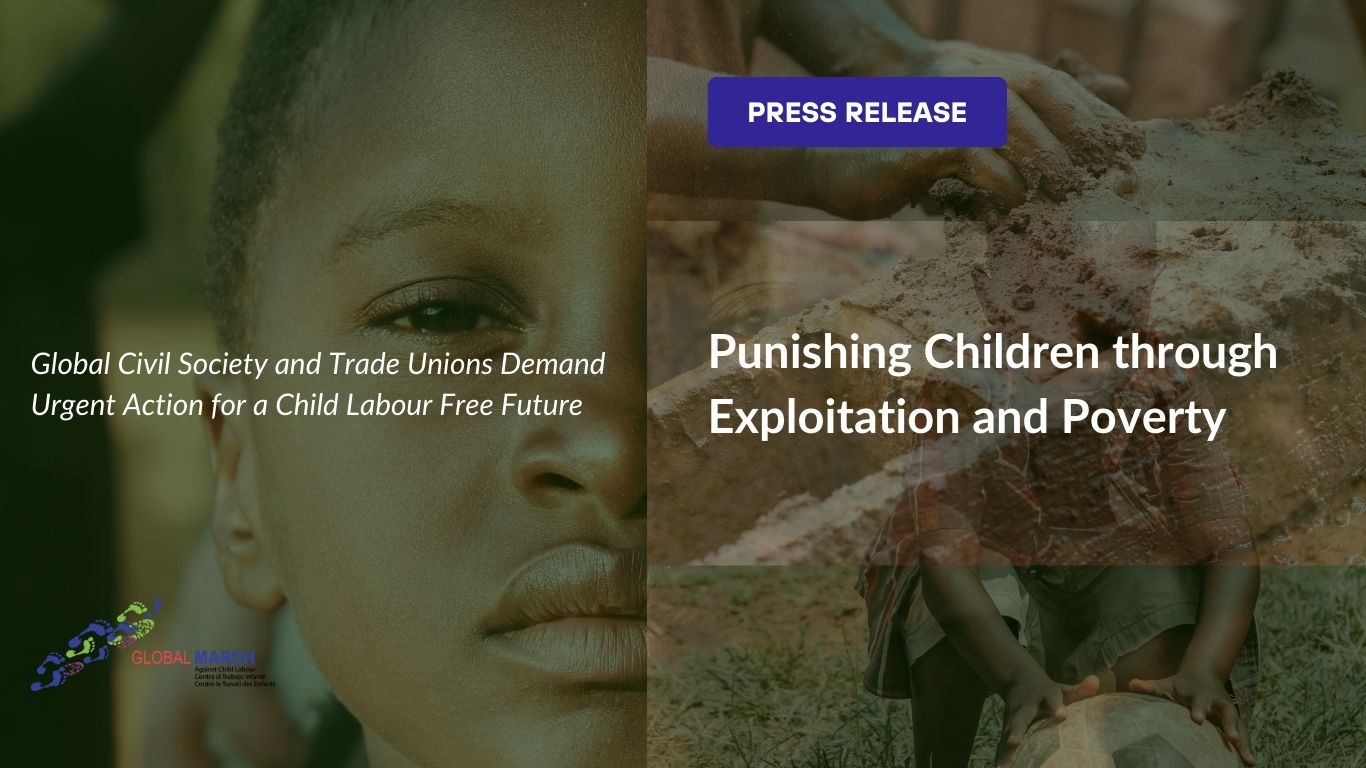PRESS RELEASE: “Punishing Children through Exploitation and Poverty”. Global Civil Society and Trade Unions Demand Urgent Action for a Child Labour Free Future as the 2025 SDG 8.7 Deadline Approaches Unfulfilled.
By: Global March Against Child Labour
Brussels,
20th March 2025
Brussels, 20-03-2025
Global civil society and trade union leaders, along with other key allies of the Global March Against Child Labour (GMACL), assembled in Brussels to assess the current state of child labour and demand immediate, decisive action to eradicate child labour. As we continue our collective fight, we realise that we have reached the breaking point after failing to end child labour by 2025. Our failure today underscores the urgent need for community-centric solutions that prioritise tackling the deeper systemic drivers of child labour, including economic exclusion and barriers to education.
“Missing the 2025 SDG 8.7 deadline is more than just a policy failure, it’s a betrayal of the future of millions of children. The quick fixes and empty promises we have been relying on so far have clearly not worked in the favor of children being exploited. It’s time for governments to step up, businesses to take real responsibility, and global institutions to enforce meaningful change by focusing on addressing the very conditions that perpetuate child labour and keep communities poor. At Global March, we’re doubling down on community-driven solutions, pushing for free, quality education for all children, fair wages for workers and prices for farmers and start addressing the real root causes of child labour. Policies need to have an impact on the lives of the children. A policy has no value when it is not backed up by action.”

-Marco Dubbelt, Senior Director
As the largest global network fighting child labour, GMACL and its members take full responsibility for driving the next phase of action. To make up for this failure, GMACL has launched a renewed five-year strategy to intensify efforts, mobilise key stakeholders, and drive sustainable change. This strategy focuses on strengthening accountability, advocating for systemic reforms, and scaling up effective area-based community-oriented solutions to prevent child labour at its roots.
Alarming Statistics Demand Urgent Action
Globally, 160 million children, almost 1 in 10, are engaged in child labour, with nearly half involved in hazardous work (International Labour Organization, Global Estimates on Child Labour, 2022). In the world’s poorest countries, slightly more than 1 in 5 children are trapped in child labour. These numbers, however, do not account for countless children who remain invisible in official statistics, making the true scale of child labour even more alarming. The number of out-of-school children has surged to 250 million worldwide, including 71 million children of primary school age, 57 million of lower secondary school age, and 120 million of upper secondary school age (UNESCO Institute for Statistics, Out-of-School Children Data, 2023). Alarmingly, the share of total development aid allocated to education fell from 9.3% in 2019 to 7.6% in 2022, while official development assistance (ODA) to developing regions declined by 8% between 2021 and 2022 (OECD, Development Aid Statistics, 2022).
These statistics reveal an alarming shift in priorities that has left millions of vulnerable children without access to quality, publicly funded education. Addressing this crisis requires dismantling systemic inequities and recognising education as a fundamental right.
Rethinking the Approach: Long-Term, Hyperlocal Solutions
The fight against child labour has been hindered by fragmented, short-lived interventions that fail to address its root causes. The focus on temporary projects rather than systemic change, neglects the core principles essential for a child labour-free world such as free, publicly funded, quality education and strong government accountability.
Shrinking civic space and weakening cooperation between CSOs and trade unions have further eroded progress. Additionally, a narrow focus on individual supply chains and commodities has sidelined the need for comprehensive, community-driven solutions in high-risk areas.
These efforts must be reinforced with trade agreements and policies that yield real benefits for children and communities, ensuring ethical and responsible business practices. Companies must look beyond certifications as they cannot adequately address deep, structural reforms that dismantle child labour at its core.
Call to Action
With the Brussels meeting, Global March calls for a shift towards community-driven, rights-based solutions that address these systemic issues in vulnerable areas.
We call on:
- Governments to immediately increase investment in free, publicly funded quality education and child protection systems, ensuring that children are in schools, not workplaces. Governments must take full ownership of child labour eradication efforts by strengthening labour laws, expanding social protection, and integrating Area-Based Approaches (ABA) into national strategies.
- Corporations to move beyond surface-level commitments and ensure their entire supply chains are free from child labour by implementing rigorous due diligence, investing in fair pricing for child labour-free zones, and enforcing strict compliance with international labour standards.
- Global development partners to stop shifting priorities and commit to sustainable, long-term policies that eliminate child labour at its root, particularly through trade agreements and policies that benefit affected communities. International trade frameworks must mandate child labour-free supply chains, making ethical business practices a non-negotiable standard.
- Civil society organisations and trade unions to amplify their collective voice to demand accountability from governments, corporations, and international institutions. Stronger collaboration between CSOs and trade unions will drive policy change, enhance labour rights enforcement, and scale up community-led interventions. Their grassroots initiatives are crucial for holding decision-makers accountable and ensuring that child labour elimination remains a global priority.
The time for half-measures is over. Governments must govern, businesses must take responsibility, and global institutions must uphold their commitments. Every day of inaction is a choice to punish children through exploitation and poverty. The world must act now, decisively, and without excuses.
For media inquiries: aastha@globalmarch.org

